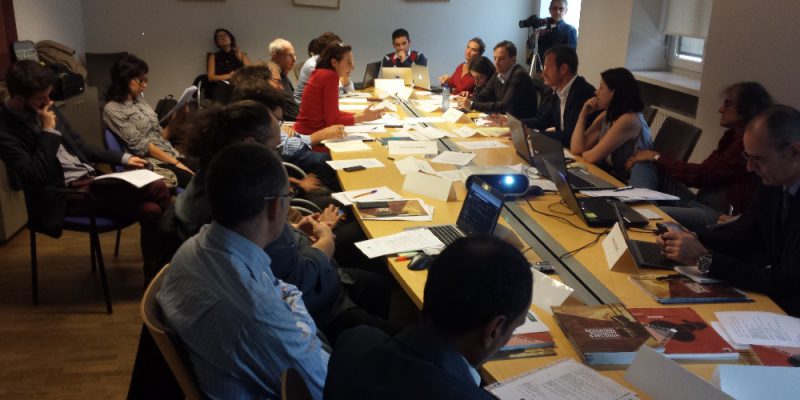Refugees: how to change the negative narrative?

The European Federation of Journalists (EFJ) and the Alliance Internationale de Journalistes (AIJ) successfully organised yesterday (4 October) a roundtable discussion on Refugees and Migrants, the inconvenient truths – Journalism against bias and stereotypes in Brussels.
Migrants and refugees have suddenly jumped at the top of the agenda and media organisations play a crucial role in shaping the public opinion. How to cover the refugee crisis with more humanity? How best to communicate with media? Many journalists, NGOs representatives and intergouvernmental organisations (UNCHR, OIM) dealing with migration issues attended the event to reflect and build a constructive dialogue on these fondamental questions.
The biggest requests @UNmigration received from journalists are data. Tips to #journalists: put figures in context! #MyStory
— EFJ (@EFJEUROPE) October 4, 2016
Martina Chichi (Carta di Roma, Italy) and Yannis Kotsifos (ESIEMTH, Greece) presented two codes of ethics for journalists, the Charter of Rome and the Charter of Idomeni. Both aim to improve the way journalists report about such sensitive issues in order to change the negative narrative refugees and migrants are currently facing.
4 principles: appropriate terminology, accurate & complete info, protecting the identity of refugees, consulting experts & org. #MyStory
— EFJ (@EFJEUROPE) October 4, 2016
Using the appropriate terminology to avoid loose language, political bias, hate speech and stereotyping “could have major consequences on the future of Europe and our societies” said Giovanni Melogli (Alliance internationale de journalistes). The Lügenpresse, or lying press, in Germany was mentioned by Renate Schroeder (EFJ) to highlight the duty of journalists towards public opinion’s expectations. “It is now time to re-establish trust in journalism and the fact” concluded journalist and former Committee to Protect Journalism EU correspondent, Jean-Paul Marthoz.
The EFJ will host another workshop on the issue on 24 October: “Interpreting Crisis: Reporting on Migration, Asylum Seekers and Syrian Conflict”, moderated by Milica Pesic. The meeting will discus the challenges journalists face when reporting on migration and conflict.
Useful links from UNHCR :
- UNHCR’s data portal – this is the portal updated routinely with data on arrivals to Europe and a wealth of information (please open using Chrome)
- UNHCR’s media database – here media colleagues can access A/V material that can be used (copyright/usage details provided) for broadcast and print. It is very quick and easy to create accounts. You can also access the contact details of UNHCR’s press officers and spokespeople worldwide
- UNHCR’s refugee stories – this page hosts extraordinary stories of survival, hope and home (including of women and children coming to Europe)
Photo credit: Ricardo Gutiérrez






